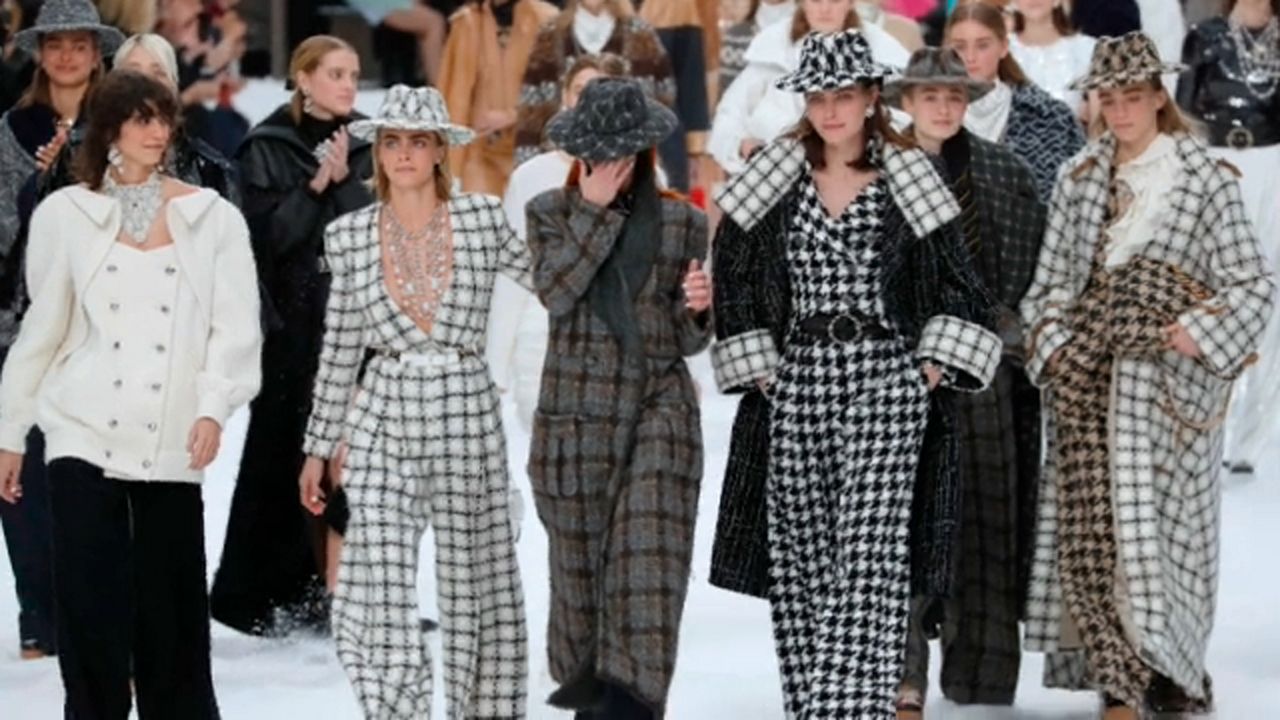
The final day of New York Fashion Week saw advocates push for labor protections for the fashion and modeling industry.
The Fashion Workers Act is needed to create regulations for talent and management companies.
The bill sponsor said it shouldn’t be a luxury to work in the fashion industry. This is hard work that should be paid in a way that is fair and accountable.
If signed into law, the legislation would require companies to act in the best interests of their hired talent, provide proper notifications about contract renewals, copies of agreements and cap commission fees at 20% of a model’s pay.
Before moving to the city for work, models are required to put money up front.
Management companies do not have to find models work or pay them in a timely fashion if they have exclusive multi-year contracts with them.
Sara Ziff, founder and executive director of the Model Alliance, said it’s normal to wait six months to get paid for a job, or even to get booked on a job.
The current state labor law allows management companies to control booking jobs and talent pay rates. The loophole can leave fashion industry workers in debt and make young people in the industry prime targets for financial and other abuses.
If the bill becomes law, models, photographers and other talent won’t be paid more than 45 days after completing a job.
Lawmakers ran out of time for a final vote on the bill, which was introduced this session and almost passed both houses of the Legislature.
The act would bar companies from discrimination and harassment and forbid management companies from taking action against employees who file a complaint.
Tony Kim, a fashion photographer of more than 20 years, said that people are afraid of being cut off by their agencies if they talk about issues. There is a strong relationship between the agency and their clients.
Kim said that no other industry allows such treatment of its hired talent, and that fashion workers want the same labor protections that benefit employees in other industries.
If the Fashion Workers Act becomes law, the state Labor Department and Attorney General’s office would enforce the new rules.
Ziff, a former model who worked as the face of brands like Calvin Klein and Tommy Hilfiger, said that her peers share similar stories about the glamorously unregulated industry.
There’s something empowering about knowing that we can change this. It doesn’t have to be like this. We’re able. We love our job. We just want people to be treated fairly.
A former model who worked in the industry for nearly two decades, Kaja Sokola was hired at age 14. She says the legislation will help transform the fashion industry and prevent abuses that often happen to young women in the field.
She said she never felt like a business partner with the agencies. They don’t treat you the same.
Sokola blamed herself for the alleged abuse she suffered at the hands of Weinstein. She accused the former American film producer of sexually abusing her in his Soho apartment when she was 16. Sokola, originally from Poland, is 35 years old.
“When you meet a teenager that doesn’t know anything about life, with these older, rich men who are predators, they’re basically hunting on young girls,” she stated.
New York has long been a leader within the global fashion industry, and models and other talent are hoping that the state will lead the way to create overdue protections for workers. It could have an effect on reform across the nation and the world.
Families could feel safer sending their children through this industry, Sokola said. The way things are, it’s really like sucking a person’s soul and leaving an empty shell.